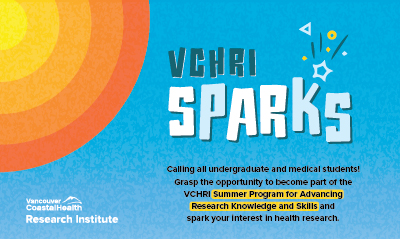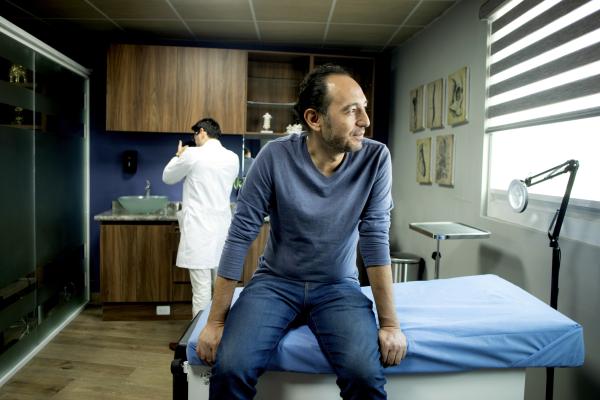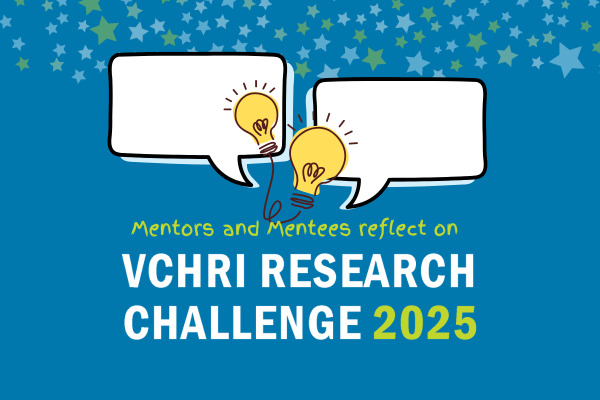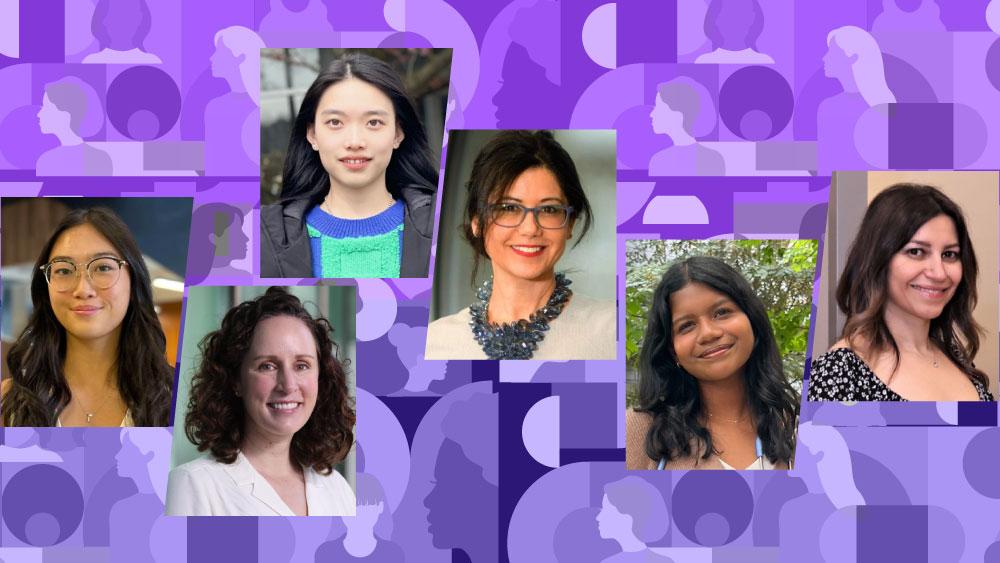
Mentors and mentees from the inaugural VCHRI SPARKS program share their advice for the next generation of women scientists.
While science, technology, engineering and math (STEM) have historically been male-dominated fields, women are increasingly leading groundbreaking discoveries. Women bring unique perspectives and skills to research, and mentorship plays a crucial role in encouraging more women to enter the discipline and contribute to innovation.
At the Vancouver Coastal Health Research Institute (VCHRI), women from diverse backgrounds and career stages are challenging the status quo and uplifting one another to succeed. We spoke with three teams from the inaugural VCHRI Summer Program Advancing Research Knowledge and Skills (SPARKS) cohort, who exemplify research excellence and leadership. These inspiring investigators and trainees share their STEM journeys and discuss the impact of mentorship opportunities and community-building on women in science.
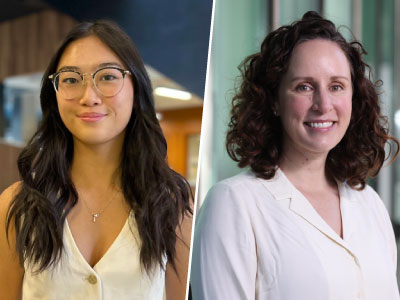
Supervisor: Dr. Gillian Hanley
Project: Changing contraceptive use patterns and future cancer rates
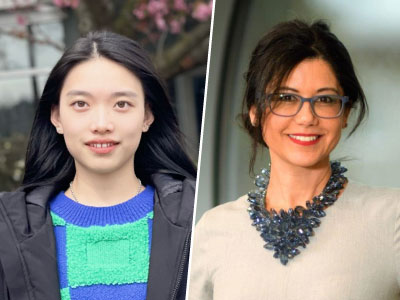
Supervisor: Dr. Amina Zoubeidi
Project: Exploring ETS gene fusions in prostate cancer: Insights into lineage plasticity, treatment dynamics and biomarker discovery
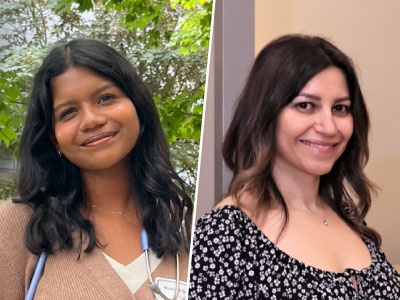
Supervisor: Dr. Aline Talhouk
Project: RESToRE risk evaluation and screening to tailor prevention and reduce the incidence of endometrial cancer
Q: When did you realize you wanted to pursue a career in STEM? Were there any key moments or role models who inspired you?
Alice: Growing up, I always enjoyed math and science in school. I was endlessly curious and genuinely loved learning. My parents and teachers encouraged me to find joy in my work, and their encouragement, combined with my passion, led me to pursue a career in STEM.
Gillian: Like Alice, I have always loved math and science and never considered anything else. During my undergraduate studies, I had a professor who emphasized the importance of increasing women’s representation in male-dominated fields. It was eye opening to change the way I was thinking, from hoping I would be lucky enough to be included in a male-dominated field to realizing the value of having more women in these professions and the impact it could have on society.
Q: What inspired you to participate in the SPARKS program, and how did your experience shape your career in health research?
Alice: I reached out to my mentor, Dr. Hanley, at the end of my first year of undergraduate studies, and I was fortunate to receive her guidance in applying to SPARKS. Working on my first research project alongside her provided me with the support to learn about the research process. Presenting my first poster at a trainee symposium allowed me to share our work and connect with other like-minded researchers. Meeting such passionate women reinforced the power of collaboration in women’s health research.
Watching my mentor thrive in her STEM career has inspired me to pursue my ambitions with confidence, knowing I have a support system to guide me.
Gillian: I typically do not work with many undergraduate students because our research involves complex big-data analysis, which requires extensive training. However, when Alice approached me, I saw her potential and knew I wanted to mentor her. Alice had a highly successful summer with SPARKS and continues to work in our lab as she finishes her undergraduate degree. Seeing her succeed motivates me to continue mentoring young women in STEM.
Q: How has being part of a mentorship relationship influenced your confidence or skills in STEM?
Rainie: Mentorship has been instrumental in helping me overcome imposter syndrome — one of the biggest challenges many women in STEM face. When I first started, I often felt intimidated in lab meetings. Having mentors who encouraged me to speak up helped me realize that my insights are valuable. This confidence has empowered me to take on more complex projects and support others experiencing similar doubts.
Amina: Engaging in mentorship and being part of a large STEM community has helped me better understand the challenges researchers and mentors face. Over the years, I have come to appreciate for the collaborative nature of STEM. Supporting each other has refined my leadership skills and strengthened my confidence to tackle obstacles and view setbacks as opportunities for growth. These experiences have reinforced the importance of embracing diverse perspectives to enrich STEM research.
Q: How can women in science find a community to support them in their career journey? Are there any communities, events or resources you would recommend at different career stages?
Rainie: For those early in their careers, finding supportive mentors, collaborative lab environments and interdisciplinary research opportunities is crucial. VCHRI offers many mentorship opportunities, including SPARKS. I encourage women in STEM to explore resources within their schools or local communities. It is all about taking that first step to connect with others who share your interests — you never know where it might lead!
Amina: Building relationships within your immediate network and finding a mentor whose values align with yours can provide guidance and inspiration. Expanding your community through professional societies, conferences and mentorship programs can lead to new opportunities and collaborations. As careers progress, joining specialized professional societies or women-focused groups within larger associations can provide mentorship, foster collaboration and offer leadership training tailored to career growth.
Mentorship is about more than just providing guidance — it’s about building a relationship founded on trust and mutual respect. Mentors should encourage growth while celebrating successes, big and small.
Q: Why is it important for women in STEM to provide mentorship opportunities for the next generation?
Navindi: Being a woman in STEM can be challenging. While gender representation has improved, finding your voice in the field can still be difficult. Mentorship provides a pathway to overcome these challenges by working alongside female scientists who have paved their own way. Learning from their experiences helps aspiring scientists carve their own path.
Aline: As a woman in STEM, I feel a strong responsibility to mentor the next generation because representation and guidance can significantly impact a young scientist’s confidence and career trajectory. Seeing someone who has navigated similar challenges and succeeded can be incredibly motivating, and having a mentor who understands those experiences provides invaluable support.
Q: What are your hopes for the next generation of women in science? What changes would you like to see in the field?
Navindi: I hope the next generation of women in science confidently find their voices. As women, we face unique challenges that can sometimes discourage us from pursuing our passions. It’s essential to stay resilient and believe in yourself as you carve out your place in the community. Looking ahead, I hope to see STEM fields become more diverse across all aspects of identity, including gender representation.
The hardest part of research is often getting your foot in the door. Reach out to researchers whose work interests you, start conversations and take initiative. Once you take that first step, everything else starts falling into place.
Aline: My wish is that future generation of women in science have equal access to opportunities, support and mentorship without facing the barriers many women have historically encountered. Inclusive hiring, funding and career development practices that prioritize diverse perspectives, alongside improvements in work-life balance, will help women thrive in STEM alongside other aspects of their lives. Through these efforts, I hope to see a more inclusive scientific community where women are well-represented and empowered to lead and drive innovation.
